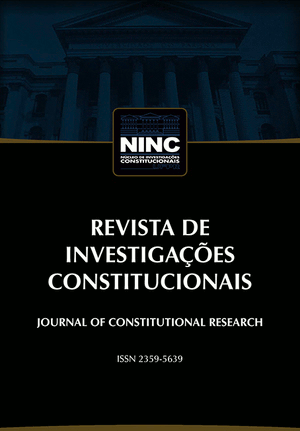Abstract
In some cases, there is little convergence among Justices with regards to the reasons underlying a given Supremo Tribunal Federal's decision. Sometimes, there isn't even a majoritarian ratio decidendi, making it very difficult to use some decisions as precedent. We argue that part of the problem is owed to the susceptibility of collegial judicial decisions to the impossibility theorems postulated by Arrow and List and Pettit. Moreover, we'll see that even though this may have always been (and will be) the case, the problem is made much more severe when there is an increase in the number of accepted reasons from the judge's perspective, which happens as a result of open-ended causa petendi in the abstract model of judicial review, under underdetermined authoritative texts or when judge's apply techniques such as partial declaration of unconstitutionality without text suppression.
Keywords:
Supremo Tribunal Federal; decision-making; Rational Choice Theory; Arrow's Theorem; List and Pettit's Theorem
